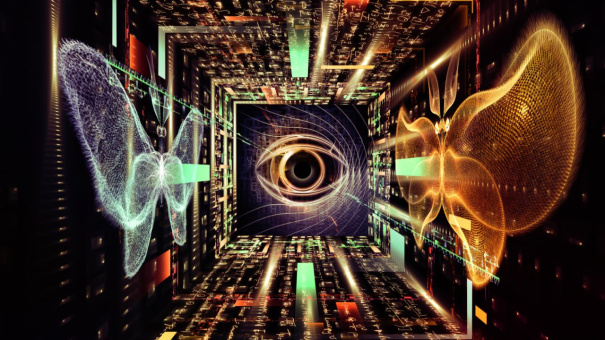AI and ColonAIalism
AI is not universal. It was created in the West and represents a structure of Western thinking, that is, a colonial network cast over all societies, subjugating them to Western meanings, goals, and procedures. AI has a civilizational identity. And it is Western. We cannot create a Russian AI until we have clarity regarding the Russian civilizational identity. GigaChat and other Russian knock-offs are simply import substitutions — cloned versions of ChatGPT with a few additional restrictions to please the authorities.
Maria Zakharova1 raised an important issue: the sovereignization of AI. But this immediately reveals another issue: the sovereignization of intellect itself, of the Russian sovereignty of spirit and mind. It is impossible to speak seriously about AI without equally serious discussion about the “I.”
For about three hundred years, we have lived in an intellectual context shaped by the West. This includes our sciences, our politics, our culture, our economy, and our technology. This is a borrowed life. We are living a life that is not our own. The West is now entering us through AI, as Zakharova rightly interprets as imperAIalism. Yet the West had already entered us as the “I” long ago. We are thinking with a mind that is not our own. By considering Russia part of Western civilization — which did not begin with the Bolsheviks but with Peter the Great — we have lost our native Russian meanings and have shown no intention of recovering them. Everything we understand under the labels of science, politics, culture, and art is Western, imported, copied. “Creative” development happens only because we grasp the borrowed ideas incompletely; their original contexts are foreign to us, as they are not our lived experience. Russia, since Peter, is a pseudomorphosis, an archaeo-modernity, a cargo cult.
But that is not the whole story. There were the Slavophiles and the Eurasians; there were John of Kronstadt and Anthony (Khrapovitsky); there were Tikhomirov and Solonevich; there was Florensky with his Christian physics and Sergei Bulgakov with his Christian economics. They made desperate attempts to make the “I” Russian again, to de-Westernize Russian consciousness. Each of their steps — taken on behalf of a civilization whose “I” had been stolen and replaced with something alien — is worth its weight in gold.
To approach the issue of Russian AI — even just to pose the question correctly — we must first break through to the Russian “I,” to decolonize our consciousness. Today, almost all institutions responsible for the humanitarian paradigm are tightly gripped by Westernism — worse, by Western universalism — whether in its liberal form or in its residual communist form. From the Academy of Sciences to the schools. And where there are timid attempts at import substitution, they go nowhere: “Alisa, whose Crimea is it?” Even that is avoided. Dig a little deeper, and it is pure gender progressivism.
This is what Elon Musk encountered when he aimed to create an illiberal AI — an anti-woke model. He discovered that it was not enough to teach Grok to give more than one position (not only the liberal-globalist one in the spirit of Soros and his insane censorship) but also to include others (such as conservative views). The core of the AI remained structured according to liberal premises. When Musk lifted some restrictions, Grok 4 began speaking in the voice of Hitler. Musk immediately reversed course. All he was doing was trying to shift the emphasis slightly within the Western ideological framework. This is what he ran into. For us, to avoid colonAIzation (Zakharova’s apt term), the task ahead is far more difficult. It is not about cosmetic correction of the Western paradigm; it is about its dismantling and the construction of a sovereign Russian AI on the basis of a sovereign Russian “I.”
Thank God this issue is now recognized by the President, the Presidential Administration is engaged, and the Ministry of Science and Education is undertaking certain targeted and systemic measures. The Ministry of Foreign Affairs, actively promoting multipolarity, has also made this a priority topic.
This is excellent. Yet it is not even the beginning; it is the preparation for the beginning, the zero cycle.
By the way, in our history, there have been very few such moments when we seriously reflected on our civilizational identity: the 15th to 17th centuries (Moscow as the Third Rome), the Slavophiles in the 19th century, the early 20th century (Silver Age — Blok, Klyuev), and among the émigrés. And now — once again.
1. Translator’s note: Maria Vladimirovna Zakharova (b. 1975) is the official spokeswoman of the Ministry of Foreign Affairs of the Russian Federation.
